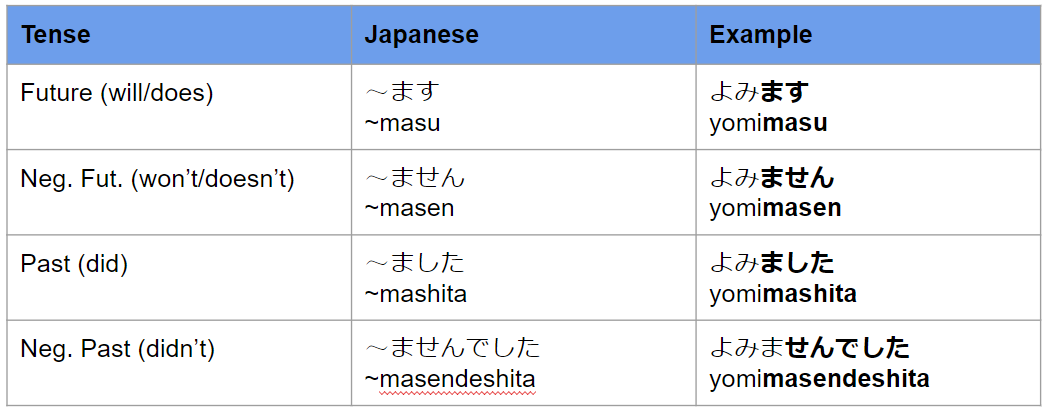Lecture 1
Types of Characters
Three types of written characters in Japanese:
Hiragana
- Most elementary, phonetic (46 total)
- Ex. ひらがな
Katakana
- Used for foreign words, phonetic (46 total, same amount as hiragana)
- Ex. テレビ (TV)
Kanji
- Most complicated, adopted from Chinese characters (tens of thousands total)
- Ex. 日本
We will only focus on hiragana for now.
English vs. Japanese Sentence Structure
For simple sentences that involve verbs, English and Japanese differ in the order in which the Subject, Object, and Verb are said. English is S-V-O, while Japanese is S-O-V.
- Subject: the thing performing the verb
- Object: the thing the verb is being done to
Template for Making Your First Simple Sentences
SUBJECTは OBJECTを VERB
Some explanation:
- When は is used in this way, it is pronounced "wa", and it's meaning is "is"
- を is the most common "particle"
- In Japanese, particles must be placed between the Object and Verb (if they are both present in the sentence)
- Depending on the context and the verb, the particle will be different.
Usage of わたし and あなた
わたし = "I/me" and あなた = "you". You will rarely need to use either of these words for this class.
- When you say a sentence and you don’t specify the subject, it is implied that you are the subject.
- Ex: うどんをたべます。 / Udon wo tabemasu. = I will eat udon. (no need for watashi here)
- When you say a question and you don’t specify the subject, it is implied that the person you are talking to is the subject.
- Ex: げんきですか? / Genki desu ka? = How are you? (no need for anata here)
In other words, these types of sentences will be just O-V sentences as opposed to S-O-V sentences.
Creating Questions from Sentences
To create a question, simply add か (ka) to the end of the sentence.
- たけしさんはげんきです = Takeshi is doing well
- たけしさんはげんきですか = Is Takeshi doing well?
Addressing Others
In Japanese, it is polite to address others with the ~san suffix. For this class, always add this suffix to a name.
Verbs
The most basic form of a verb is ~ます (~masu) form. ~ます form translates to "will" or "does."
- To get negative or past tenses, the verb will need to be conjugated (changed) from ~ます form
- These conjugations are straightforward; just replace ~ます with the appropriate ending
